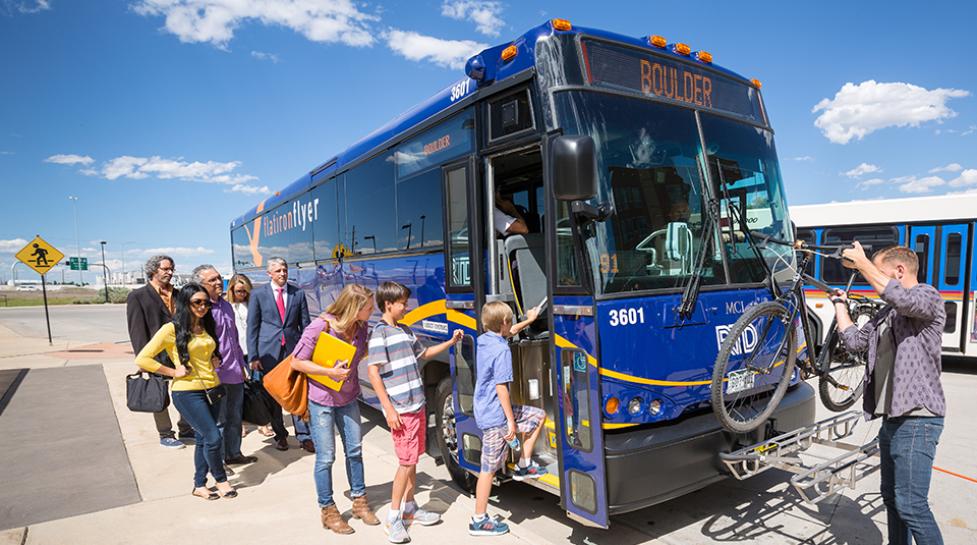Community members are encouraged to ride transit more to reduce ground-level ozone
Holiday Closures
In observance of the winter holidays, the City of Boulder is adjusting its operations schedules.

City of Boulder Media Relations: 720-667-9480
RTD Media Relations: 720-326-7311, mediainquiries@rtd-denver.com
The Regional Transportation District (RTD) will launch “Zero Fare for Better Air” – a collaborative, statewide initiative designed to reduce ground-level ozone by increasing use of transit – beginning Aug. 1 through Aug. 31. The City of Boulder is proudly partnering with RTD to encourage community members to increase transit ridership for cleaner air. Through a partnership with the Colorado Energy Office, made possible by Colorado Senate Bill 22-180, RTD will offer zero fares on all services during the month of August. The City of Boulder is also partnering with Via Mobility Services to provide zero-fare service on the local Boulder HOP bus route.
Additionally, in support of RTD’s Zero Fare for Better Air initiative, RTD will host a Customer Coffee Chat at Downtown Boulder Station on Thursday, Aug. 11, from 6 to 8 a.m. RTD Transit Police, Service Development and Customer Care staff will be on hand to answer questions about RTD’s services, ongoing projects, and the Zero Fare for Better Air initiative.
At their July 21 meeting, Boulder City Council passed a resolution in support of Zero Fare for Better Air. The city’s 2019 Transportation Master Plan (TMP) recommends zero fare for local and regional transit services as a strategy to enhance equity, promote access to opportunity, and reduce greenhouse gas emissions through modal shift and increased transit ridership.
“We are excited to support the Zero Fare for Better Air initiative and offer zero-fare service on all RTD buses and our local HOP bus throughout August,” said City of Boulder Mayor Aaron Brockett. “We encourage all community members to take advantage of this opportunity and swap some of their car trips for bus trips, which will save you gas money and the stress of driving, while also helping to reduce greenhouse gas emissions.”

In Boulder, approximately 78% of the greenhouse gas emissions that come from transportation are due to day-to-day commutes. By leaving the car at home, a person can save up to 20 pounds of carbon dioxide emissions every day.
Other benefits to taking transit include:
To learn how to hop on board to participate in Zero Fare for Better Air, visit rtd-denver.com/zerofare.com. Service schedules for the HOP bus can be found at https://bouldercolorado.gov/services/hop-bus. More tips about how to use less gas can be found at https://bouldercolorado.gov/news/how-use-less-gas